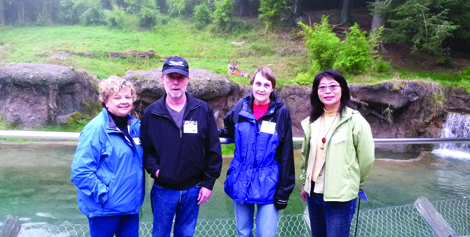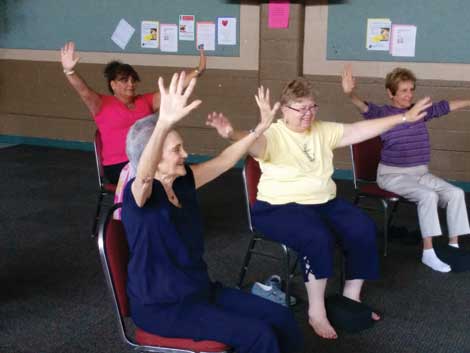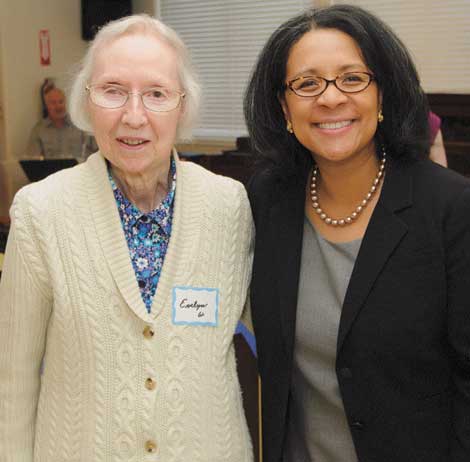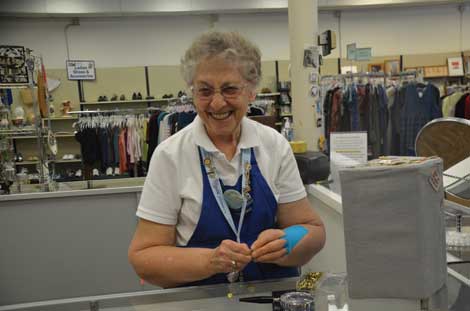Zoo walks start conversations and memories
Early in the morning, when the Point Defiance Zoo and Aquarium first opens, most of the animals are out and waiting for breakfast, such as the red wolves roaming around their environment.
This fall, the Early Stage Memory Loss zoo walk participants were greeted throughout the zoo with similar, out-of-the-ordinary sights such as the skunk going on a walk with its keeper, catching the attention of the Sumatran Tigers. The sights triggered memories and ignited conversation which continued over snacks in the cafe.
Caregiver Services at Lutheran Community Services Northwest has partnered with the Alzheimer’s Association to offer a stimulating environment for individuals with mild memory loss and their care partners at the zoo in Tacoma. Participants partake in a weekly morning walk through the zoo, followed by coffee and conversation to exercise and build relationships with others who understand their concerns and can offer support. The winter series of eight walks begins Nov. 13 and includes free admission to the zoo and aquarium. Participants pay for their own beverages at the Plaza Cafe following the walk. To register, contact the Early Stage Memory Loss coordinator with the Alzheimer’s Association at 206-529-3868. The deadline for registration is Nov. 7.
Early research indicates that daily physical exercise along with social engagement can help delay the effects of dementia, although individuals experiencing memory loss often retreat from both. There is a stigma attached to dementia that often keeps friends, aquaintances and even family at arm’s length. Individuals with the disease have no one to talk to about the experience which can add to the anger, denial and depression they experience. Zoo walks are one activity that can help.
In addition to the zoo walks, the Alzheimer’s Association offers a variety of services for individuals with early-stage memory loss and their care partners. More about that, as well as referrals to other services for individuals and care partners at all stages of the disease, is available from the association at 1-800-272-3900 and www.alzwa.org.
Lutheran Community Services Northwest provides services for family caregivers, including Support U: Fostering Caregiver Wellness classes. The agency also offers services such as home care, respite, and Meals on Wheels. The Caregiver Services staff can be reached at 253-539-0255 for details or referral to other agency programs. Information is also available at www.lcsnw.org/tacoma.



